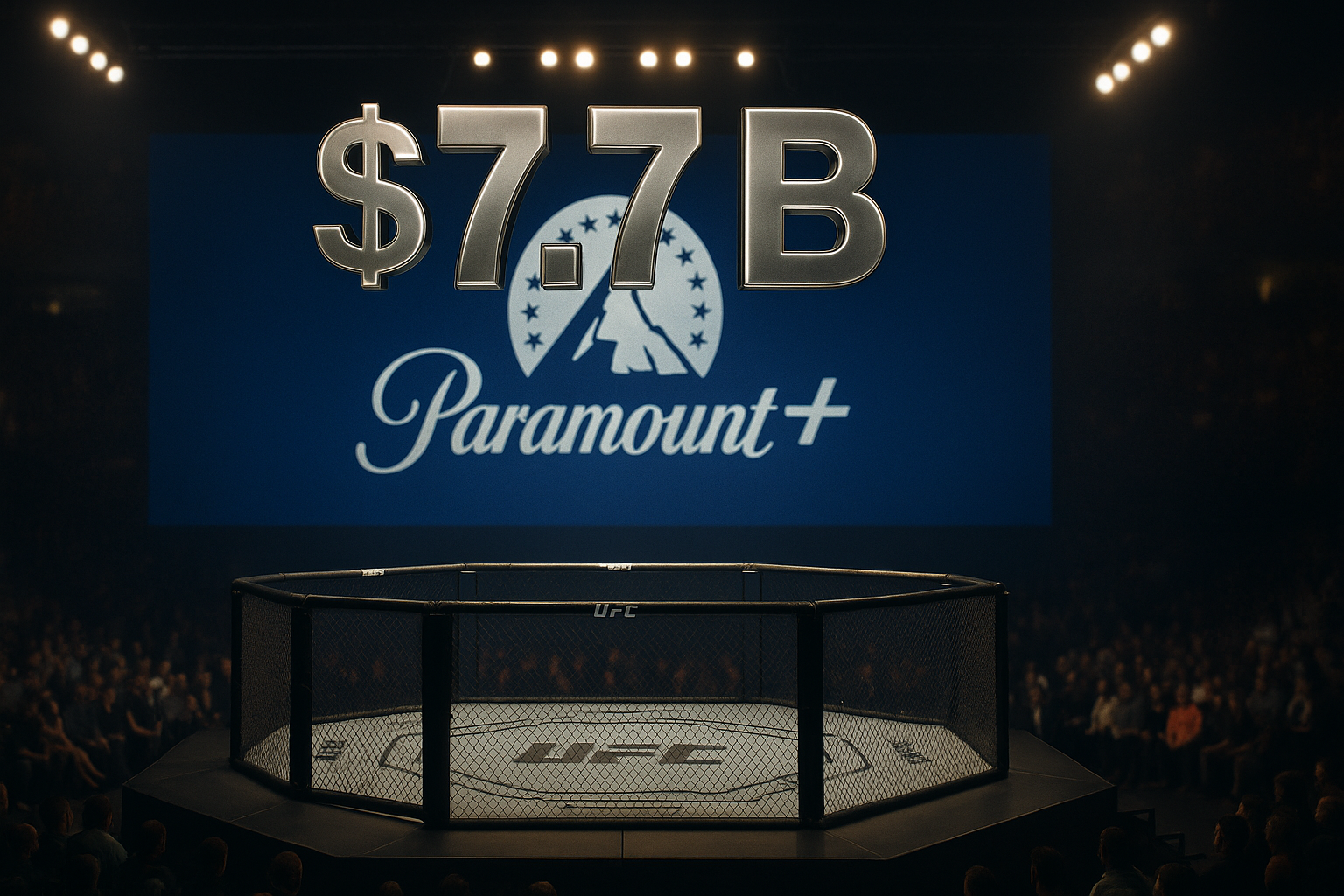In what might be the most expensive subscription bait in entertainment history, Paramount just threw down $7.7 billion to secure exclusive UFC rights for the next seven years. Starting in 2026, all those octagon battles will stream exclusively on Paramount+ in the U.S.—and here's the kicker—with no more pay-per-view charges. None.
I've covered media deals for years, and this one's a doozy. There's something almost poetically on-the-nose about a company named "Paramount" making what they clearly see as their paramount deal. The streaming wars have officially entered their "mortgage-your-future-for-sports-rights" phase.
Subscription Economics: The New Blood Sport
Let's break this down. The model isn't complicated, just breathtakingly expensive.
Paramount is betting $1.1 billion annually that UFC content will be the subscription retention tool they desperately need. It's like they've discovered what old-school cable executives knew all along—nothing keeps subscribers paying like must-see live sports. Especially sports where people might literally get knocked unconscious.
The math here is... ambitious. If we're looking at roughly $10 monthly for Paramount+, they'd need over 9 million year-round subscribers just to cover the UFC costs. And that's before paying for, you know, actually producing and streaming the events.
When I spoke with several industry analysts this week, the consensus was clear: this is either brilliant or borderline reckless. Maybe both.
The Pay-Per-View Model Gets Knocked Out
The most fascinating aspect here? Paramount's willingness to completely abandon the pay-per-view model that has made UFC obscenely profitable.
For context, major UFC events typically cost viewers $79.99 a pop. Some sell well over a million buys. That's a whole lot of $80 transactions Paramount is sacrificing at the altar of subscriber acquisition.
"This is like watching someone push all their chips into the center of the table," one streaming executive told me (speaking anonymously because, well, corporate politics). "They're betting the entire economic model of combat sports can be successfully transformed."
Look, there's precedent here. HBO eventually abandoned boxing pay-per-view. WWE migrated its special events to its streaming service before the whole operation got swallowed by Netflix. The pattern is clear as a perfectly landed right hook: recurring revenue is king in the streaming world, even if it means leaving immediate cash on the table.
Media Consolidation Enters the Octagon
This megadeal couldn't come at a more telling time. Paramount is in the process of merging with Skydance, creating yet another entertainment behemoth in an industry increasingly dominated by fewer, larger players.
It's almost dizzying to track. Disney has ESPN+ and its bundle strategy. Amazon has Thursday Night Football. Netflix grabbed WWE. Apple's got Friday baseball and MLS. Now Paramount has the UFC.
The question nobody seems eager to answer? Whether American households will keep adding subscriptions. There's a ceiling somewhere. There has to be. Right?
I remember covering the early days of the streaming wars (circa 2019, which feels like ancient history now). Back then, executives talked about competing on content quality and price. Now they're just throwing billions at sports rights and hoping subscribers stick around longer than the average celebrity marriage.
What This Means For... Everyone
For UFC fans, this is an unqualified win. No more shelling out $80 on top of existing subscriptions just to watch the big fights. That's significant money back in the pockets of dedicated viewers.
For Paramount, it's a bet-the-company move that belongs squarely in the high-risk, potentially high-reward category. They're essentially saying UFC content is the special sauce that will make their service indispensable.
(Side note: I've always found it interesting how much overlap exists between UFC demographics and coveted advertising audiences. This isn't just about subscription revenue—it's about delivering specific eyeballs to advertisers willing to pay premium rates to reach them.)
For other media companies? It's another sobering reminder that the cost of admission to the streaming major leagues continues to skyrocket. Sports rights have become the new nuclear arms race of entertainment, with companies willing to sacrifice short-term profitability to avoid extinction.
The brutal truth is that some of these streaming services won't survive the next five years. Not all of them can become consumer essentials. Someone's going to get knocked out of the competition—probably several someones.
In the meantime, I'll be watching with interest—both the fights themselves and the financial statements that follow. The real winners might be the UFC fighters themselves, who now have even more leverage to demand higher compensation.
After all, in this particular fight, they've proven to be worth $7.7 billion to someone. That's not just prize money—that's prize money with a whole lot of zeros.
